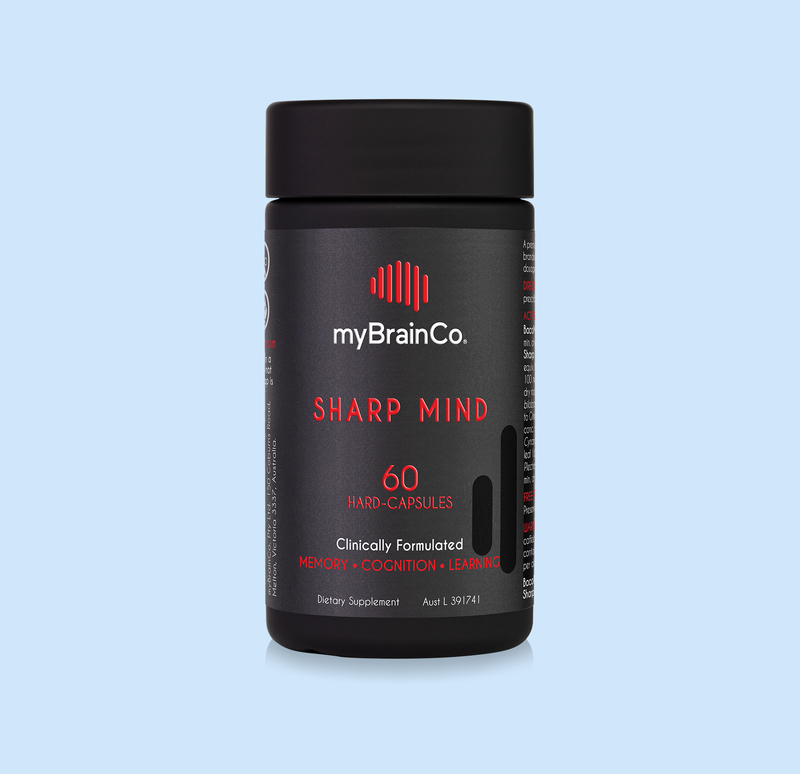You may already be a full-time freelancer, or perhaps you’ve started working from home due to the COVID-19 pandemic. Either way, remote work comes with its own set of challenges. Whilst you can set your own hours and cut down on commuting time, when you’re not used to it, it can be tough to achieve the same level of productivity and focus that you might have in a different setting.
From incorporating movement breaks to fueling your brain, these tips will help you stay focused and protect your mental and physical wellbeing when working from home.
5 Ways To Stay Focused While You’re Working From Home
1. Designate a Space
Whilst lying on the couch with your laptop might sound like a nice idea, the effects on our posture, focus and eyesight leave much to be desired. Whether you have a glamorous home office or a tidy corner of your kitchen table, designating a space to work is crucial to your productivity, happiness and overall success.
For one, you can have all your papers, tools and equipment on-hand and organised. But even more importantly, having a clear delineation between ‘home’ and ‘work’ will help ensure that you, and whoever’s in the house with you, have established boundaries and expectations regarding your work versus leisure time.
Create a functional and healthy environment that maximises your efficiency and productivity by considering the following:
- Ergonomics – Set up your desk, chair, keyboard, mouse and screens in a way that makes you feel comfortable, protects your posture and prevents injuries.
-
Good Lighting – Bad lighting is linked to a range of physical and mental ill-health effects, including eye strain, headaches, fatigue, stress and anxiety.
Position your working space somewhere with plenty of light—ideally natural light. Windows and exposure to daylight have a positive effect on the body and the mind, providing suitable levels of illumination for visual acuity, increasing comfort, improving performance and even helping prevent conditions such as seasonal affective disorder (SAD), allowing you to be more productive on a day-to-day basis.
- Personalisation – You’ll be here for many hours each day: make it a place where you’ll enjoy spending time. Add your own personal touch with photos and artwork for inspiration, or keep it clean with slick stationery and muted colours.
- A Sense of Wellbeing – Open up the window to let in some fresh air. Play music that motivates you. And invest in some indoor plants—not only do they help purify the air, but studies have found that interacting with houseplants reduces psychological and physiological stress, lowering people’s heart rate and blood pressure.[2] Other research has found that the presence of pot plants in offices reduced fatigue, stress, dry throats, headaches, coughs and dry skin among workers. The healing power of nature; be sure to give it a go.
2. Set Up A Schedule
When you only have to walk two steps between your bed and your office, it’s all-too-easy to stay in your pyjamas and waste away the hours spent at your desk. But creating a structured routine will help your mind and body adapt to your working environment.
If working from home is new to you, aim to mirror your life before COVID-19 to the best of your ability—go to bed and wake up at a similar time, get outside for some exercise, eat meals away from your desk and set regular ‘office hours’.
Sticking to a daily schedule can help us to feel more in control, and ensures we make room for things that are important to us—exercise, family, fun, mindfulness and relaxation.
3. Set Break Reminders
Sitting at our desk and staring at our screens all day and night isn’t healthy. We can only push ourselves for so long mentally before our brain simply needs a break, otherwise our performance decreases, and long-term, serious health concerns such as anxiety, insomnia and depression can occur.
Our brains are built to detect and respond to change, so by taking regular short breaks you’re helping your brain stay energised and focused. Try variations of the following and confirm what works best for you:
- Setting a countdown timer while you do an hour of work.
- Rewarding yourself with a short 5 to 15 minute break when the alarm goes off—make a coffee, do some jumping jacks or get a breath of fresh air.
- Taking a longer break every 2 to 4 hours.
Even brief diversions from a task can dramatically improve one’s ability to focus on that task for prolonged periods.[3]
Using your breaks to get outside for 15 to 20 minutes each day will help synchronise your body clock so you remain alert during work hours. This is because sunlight helps stimulate the pineal gland, which produces melatonin—a hormone that helps regulate the sleep-wake cycle.
4. Move Around
Doing our best to stay active has never been more important. Decreased exercise frequency significantly correlates with lower professional efficacy.[4]
Regular aerobic exercise also appears to increase the volume of the hippocampus,[5] the area of the brain associated with verbal memory and learning.
As well as improving focus, physical activity helps reduce stress and anxiety and improves mood and sleep. Issues in these areas commonly cause or contribute to cognitive impairment,[6] so it’s as important as ever to keep moving.
Exercise releases stress-relieving hormones called endorphins, one of which is serotonin which improves mood and alleviates symptoms of depression (find out more about serotonin in our article here). As little as 10-min physical activity may increase levels of happiness![7] People who exercise also form more neurons that emit the neurotransmitter GABA, which reduces overall anxiety[8] and has long-lasting effects.
Standard recommendations advise 30 minutes of moderate physical activity most days of the week, or 150 minutes per week. Go for a brisk walk around your neighbourhood, jog to the park, rake the leaves in your garden or do an at-home exercise video.
5. Fuel Your Brain
During times of stress, it’s tempting to reach for comfort foods that are high in sugar and processed fats. While the instant gratification may be hard to resist, these types of foods can affect your energy levels, increase stress and anxiety, and be detrimental to your focus.[9].When choosing snacks and meals, opt for foods that are high in protein, omega-3s and other vitamins and minerals.
- Omega-3 fats – Fatty fish such as salmon, sardines and trout are a source of omega-3s fatty acids, one of our brain’s major building blocks. Omega-3s play a role in sharpening memory and improving mood, as well as protecting your brain against decline.[10]
For a number of reasons, it can be hard to consume sufficient quantities of quality, wild-caught fish, this is where supplementation can be beneficial to boost levels.
- Blueberries – Blueberries and other bright-coloured berries contain a group of plant compounds with anti-inflammatory and antioxidant effects called anthocyanins. They’re neuroprotective and improve motor and cognitive function to help us focus.[11]
Try sprinkling them on your morning oats or as a post-lunch snack.
- Dark chocolate – Dark chocolate and cocoa powder are packed with brain-boosting compounds, including antioxidants and flavonoids.[12,13]
Not only that, but dark chocolate boosts serotonin and endorphin levels, which are linked to improved concentration. One square of quality 70%+ dark chocolate should be enough to get you through that afternoon slump, and best of all, it’s delicious.
- Green Tea – The caffeine in green tea boosts brain function by improving alertness, performance, memory and focus.[14] But beyond that, green tea balances its caffeine content with the relaxing amino acid theanine which improves mental alertness and has neuroprotective effects.[15]
If you find yourself fading during the day, green tea is your ticket.
- Vitamin B5 – This B vitamin is required by your body to synthesise coenzyme-A (CoA). CoA is essential to many life-sustaining biochemical processes, including converting choline into the neurotransmitter acetylcholine, which is associated with optimal learning, memory and focus. Find out more about acetylcholine here.
- Bacopa monnieri – BacoMind® is a patented extract of Bacopa monnieri. As an acetylcholinesterase (AChE) enzyme inhibitor, BacoMind® reduces the breaking down of the above-mentioned neurotransmitter acetylcholine, thereby enhancing memory, learning ability and concentration.
- Water – Finally, we must remain hydrated when working from home. Being dehydrated is linked to fatigue, reduced concentration and headaches, all of which affect our ability to focus. Keep a 1L bottle of water next to your desk and aim to drink at least two of these throughout the day.
Takeaway
Working from home can be rife with challenges. Thankfully, there are some simple but effective ways to stay focused while working from home. From eating the right foods for your brain to taking regular breaks, we can increase our mental focus, be more productive, and feel happier and healthier.



